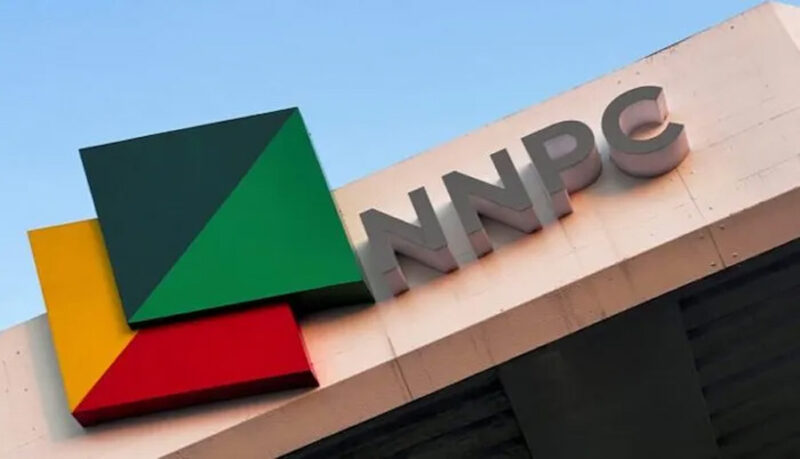Business
No one can create jobs, grow economy under current interest rate – Dangote

No one can create jobs, grow economy under current interest rate – Dangote
President of the Dangote Group, Aliko Dangote, says the current interest rate of 26 per cent charged on bank loans is unfavourable for meaningful business growth.
Indeed, he said the high interest rate had made it difficult to create jobs to grow the economy.
He spoke on Tuesday during the opening session of a three-day summit organised by the Manufacturers Association of Nigeria (MAN) at the Banquet Hall of the State House, Abuja.
Dangote said many businesses could not cope with the current rate.
The Central Bank of Nigeria’s Monetary Policy Committee (MPC) had increased the Monetary Policy Rate (MPR) for the third straight time from 24.75 per cent to 26. 25 per cent.
Dangote said, “Nobody can create jobs with an interest rate of 30%. No growth will happen.”
He also called on the government to protect existing businesses in the country, especially manufacturers by providing an enabling environment for them to thrive.
According to him, an import-dependent country is equivalent to poverty importation.
“No power, no prosperity, no affordable financing, no growth, no development,” he lamented.
Dangote said for the government to address the challenges of unemployment, poverty and insecurity, the manufacturing sector must be empowered to function optimally.
MAN also criticised government policies and attitude, saying they were responsible for the low performance of the manufacturing sector in the country.
The event had in attendance Vice President Kashim Shettima and other government officials. President of MAN, Otunba Francis Meshioye, said over 70 manufacturers had exited the sector between 2019 and 2022.
He said it was time to take stock and rethink a way to support manufacturing businesses to achieve the agenda of the current administration.
Business
MTN, Airtel to share network infrastructure in Nigeria

MTN, Airtel to share network infrastructure in Nigeria
Airtel Africa has partnered with MTN Group to expand digital inclusion by sharing network infrastructure in Uganda and Nigeria.
In a statement in Lagos on Wednesday, Airtel said the sharing agreements aim to improve network cost efficiencies, expand coverage, and provide enhanced mobile services to millions of customers.
A sharing agreement is a formal arrangement between two or more parties to share resources, assets, or services.
According to the telecommunications company, the partnership will benefit customers in remote and rural areas who do not yet fully enjoy the benefits of a modern connected life.
Airtel assured that both parties will ensure the agreement complied with local regulatory and statutory requirements.
Sunil Taldar, chief executive officer (CEO) of Airtel Africa, said telecommunications companies are driving digital financial inclusion by building common infrastructure within the regulatory framework.
Taldar noted that the collaborative approach not only advances digital transformation and financial inclusion but also reduces the duplication of expensive infrastructure.
READ ALSO:
- Kogi group seeking Senator Natasha’s recall not registered – CAC
- Obasanjo’s position on Rivers emergency rule hypocritical, says Presidency
- Bill to stop politicians above 60 from contesting presidential, gov poll scales 2nd reading in Reps
As a result, Taldar said operational efficiencies are boosted, ultimately benefiting customers.
He further said telecoms continue to compete fiercely in the market, differentiating themselves through their brand, services, and offerings.
“The initiative is part of a growing global trend toward network sharing. By collaborating, telecoms operators can explore innovative and pro-competitive solutions to improve service quality while managing costs more effectively,” Taldar said.
“The sharing of infrastructure has the potential to enable the delivery of world-class, reliable mobile services to more and more customers across Africa.”
Taldar added that following the conclusion of agreements in Uganda and Nigeria, MTN and Airtel Africa are also exploring various opportunities in other markets, including Congo-Brazzaville, Rwanda, and Zambia.
Ralph Mupita, MTN Group CEO, said there is a need to invest in coverage and capacity to ensure high-quality connectivity to meet customers’ increasing demands.
“As MTN, we are driven by the vision of delivering digital solutions that drive Africa’s progress,” Mupita said.
“We continue to see strong structural demand for digital and financial services across our markets.
“To meet this demand, we continue to invest in coverage and capacity to ensure high-quality connectivity for our customers.”
Mupita added that there are opportunities within regulatory frameworks for sharing resources to drive higher efficiencies and improve returns.
MTN, Airtel to share network infrastructure in Nigeria
Business
NNPCL in historic initial public offer, ready for capital market

NNPCL in historic initial public offer, ready for capital market
The Nigerian National Petroleum Company Limited (NNPCL) has announced that it is in the final stages of preparation for its much-anticipated listing on the capital market, in line with the provisions of the Petroleum Industry Act (PIA) 2021.
The company’s Chief Corporate Communications Officer, Olufemi Soneye, disclosed this in a statement on Thursday in Abuja.
According to the statement, the Chief Finance and Investor Relations Officer, Olugbenga Oluwaniyi, revealed the development during a consultative meeting with partners at the NNPC headquarters.
READ ALSO:
- Kogi group seeking Senator Natasha’s recall not registered – CAC
- Obasanjo’s position on Rivers emergency rule hypocritical, says Presidency
- Bill to stop politicians above 60 from contesting presidential, gov poll scales 2nd reading in Reps
He stated that NNPCL is currently engaging with potential investors through an exercise called the “NNPC Ltd. IPO Beauty Parade,” which aligns with capital market regulations ahead of its Initial Public Offer (IPO).
“According to the CFIO, the aim of the IPO Beauty Parade is to access potential partners and determine in what ways they could be of support to the company,” the statement explained.
The statement further highlighted that NNPCL is seeking partnerships in three key areas: Investor Relations, IPO Readiness Advisors, and Investment Banking Partners. Companies with the most competitive offers will be selected for each category.
An IPO is a public offering in which a company’s shares are sold to institutional investors. Under the PIA, NNPCL is required to list its shares on the capital market in compliance with the Companies and Allied Matters Act (CAMA) 1990.
NNPCL in historic initial public offer, ready for capital market
Business
Naira rises to N1,560/$ in parallel market

Naira rises to N1,560/$ in parallel market
The Naira yesterday appreciated to N1, 560 per dollar in the parallel market from N1,570 per dollar on Wednesday. But the Naira depreciated to N1,540 per dollar in the Nigerian Foreign Exchange Market (NFEM).
Data published by the Central Bank of Nigeria, CBN, showed that the indicative exchange rate for the naira rose to N1,540 per dollar from N1,539 per dollar on Wednesday, indicating N1 depreciation for the naira.
READ ALSO:
- How Wande Abimbola rejected IBB’s ING bait, and other stories (2)
- FG declares public holidays for Eid-el-Fitr
- JUST-IN: Ex-Oyo gov Ajimobi’s first child Bisola dies At 42
Naira rises to N1,560/$ in parallel market
-

 metro1 day ago
metro1 day agoRivers administrator Ibas fires Fubara’s political appointees
-

 metro1 day ago
metro1 day agoJUST-IN: Ex-Oyo gov Ajimobi’s first child Bisola dies At 42
-

 International3 days ago
International3 days agoCanada removes bonus ranking points for job offers in Express Entry system
-

 metro2 days ago
metro2 days agoHow ritualists, native doctor drugged, murdered underage sisters in PH – Police
-

 metro1 day ago
metro1 day agoFG declares public holidays for Eid-el-Fitr
-

 Sports3 days ago
Sports3 days agoNigeria’s Super Eagles falter in W’Cup qualifiers against Zimbabwe, S’Africa lead, Egypt, Morocco qualify
-

 metro3 days ago
metro3 days agoAkpabio has habit of abusing women, says Atiku
-

 Africa1 day ago
Africa1 day agoNiger coup leader sworn in as president for five years













